The Future of Automotive Sales is Online
Accelerated by the pandemic, automotive sales have seen an increasing shift to digital retailing. Every path to purchase has changed and it no longer begins in the showroom. Today’s consumers expect to research, shop for, and even purchase a vehicle online.
To rebuild from pandemic impacts and thrive in this new era, dealers, lenders and original equipment manufacturers (OEMS) must fully embrace this shift and change the way they do business.
From online research and consultations, to direct-to-home delivery, the new digital retailing business model is leading the way. New start-up companies already embrace this model, knowing that the tech-savvy consumer wants the ability to make much of their vehicle purchase decision online. To keep their competitive edge, dealers must create a better vehicle-buying experience for today’s consumer.
According to Shopify’s Robert Hein, “It’s the consumer who is in control. Their demand is shifting needs and expectations. Part of it is digital, part of it is real life.” This means moving from solely in-person sales to both a virtual and physical showroom experience to secure a deal. To help do that, taq Automotive Intelligence has been evolving side by side with consumers. Using automotive intelligence — consumer research and digital marketing data, combined with our decades of experience — we understand the new needs of buyers. For example, as the majority of vehicle buyers (92%) conduct their research online (2020 Google Consumer Survey), they require new forms of engagement at each touchpoint on the new path to purchase.
To successfully engage in this complete re-imagining of how vehicles are bought and sold, the industry needs the right tools. Through research and strategic insight, we have created several new products and services to make it easy to adapt to the digital automotive marketplace. This includes a new customer relationship platform (CRM), digital retailing software, and our ongoing dealer, lender and OEM services. And all of it is based on automotive intelligence.
Today, prospective buyers are less inclined to want to interact with sales associates at dealerships. This is a trend across all regions and age groups, and surprisingly, especially amongst consumers aged 55 to 70, who now consider online buying a relevant alternative (2021 McKinsey Consumer Survey). Overall, about two-thirds of consumers view digital experiences and interactions as a good alternative to a dealer visit and over 60% say they would make their purchase online. The new taq CRM platform provides the integrative technology needed by the dealer, lender and everyone involved. It enables teams to be more connected in the purchase journey — whether online, in-person or both — for better consumer engagement and increased sales.
Knowing that 17% of consumers will buy sooner if there is an online purchase option, we also built new digital retailing software. Bringing together all the necessary components, like payment calculations and credit decisions, it reflects the changes we’re seeing and is designed to boost dealership efficiency and performance. A platform-agnostic solution, it can be added to any dealer website, making it easier to adapt to the new sales landscape.
As the numbers indicate, it is crucial to see where the industry is quickly headed and what the future is like using data. At taq Automotive Intelligence, we are creating the future of automotive sales by building what our customers are asking for — to improve the industry and consumer experience. Join us as we drive forward into online automotive retailing.
John Currado is President & Chief Operations Officer, taq Automotive Intelligence. With over 30 years in the financial lending and leasing business and a decade at taq, he is a leader in innovation and technology in the retail automotive space, driving taq’s technology and enterprise relationship strategies.

